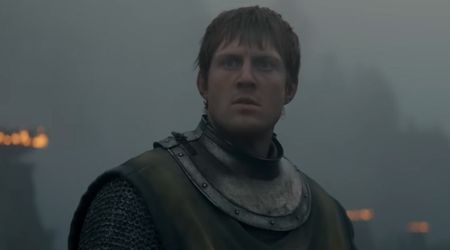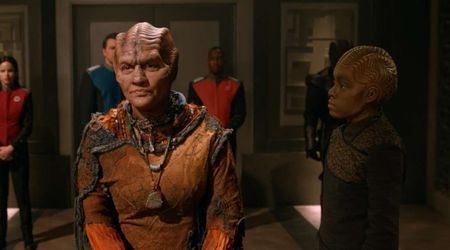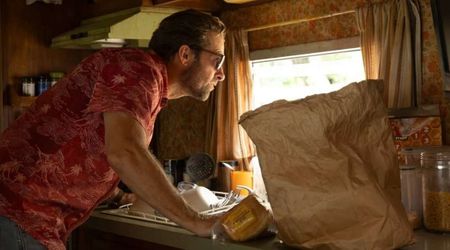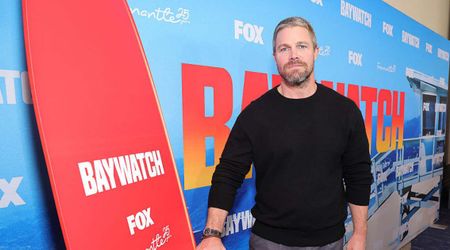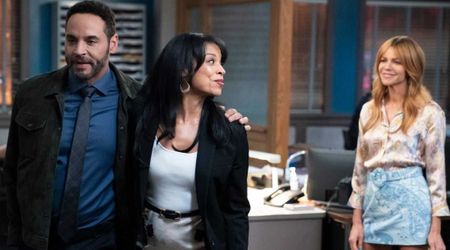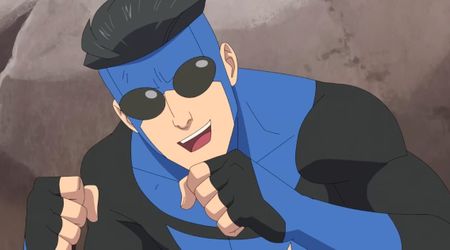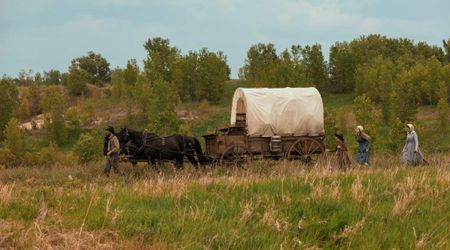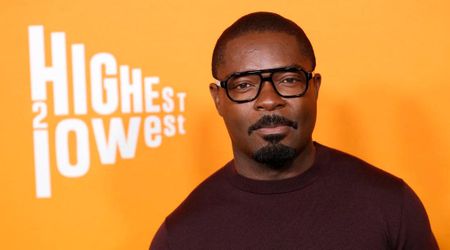'The Terror: Infamy': Horrifying reality of Japanese internment camps come to fore with George Takei and Derek Mio's personal history

This article contains spoilers for 'The Terror: Infamy' episode 1.
Set at a time when the United States was at war with Imperial Japan during the Second World War, AMC's latest horror 'The Terror: Infamy' has a lot more than just scary evil spirits contributing to its element of horror. Apart from the supernatural, the show also focuses on the unfairness and injustices that the Japanese-American community had to undergo just because of their heritage and that is only amplified by incorporating cast members like Derek Mio and George Takei who have had a personal association with the harrowing experience of the people who belonged to the community.
The very first episode of the second season of the anthology horror doesn't wait to establish that the real horror in the story is the Japanese internment camps. We see Mio's lead character Chester tying to find himself in the diaspora of growing up in an alien land, a result of which is him feeling like he doesn't belong anywhere. But his father Henry (Shingo Usami) has to cope with the reality of been unfairly treated by the same nation where he had migrated years ago to pursue the coveted American dream.
Documenting the shameful past where about 125,000 men, women, and children interned between the years 1941 and 1945, we see Henry get pulled out of bed in the middle of the night, and sent off to camp with other members of his community. The racial tension is also rife because Henry's American bosses are not ones to take his extreme efforts as a fisherman into consideration when it comes to paying him for his labor. Takei's character is a community leader, as the all-wise Yamato-san, but even his solemn maturity and experience living as an outsider in America doesn't help him save his fellow members of the community of the impending horrors.
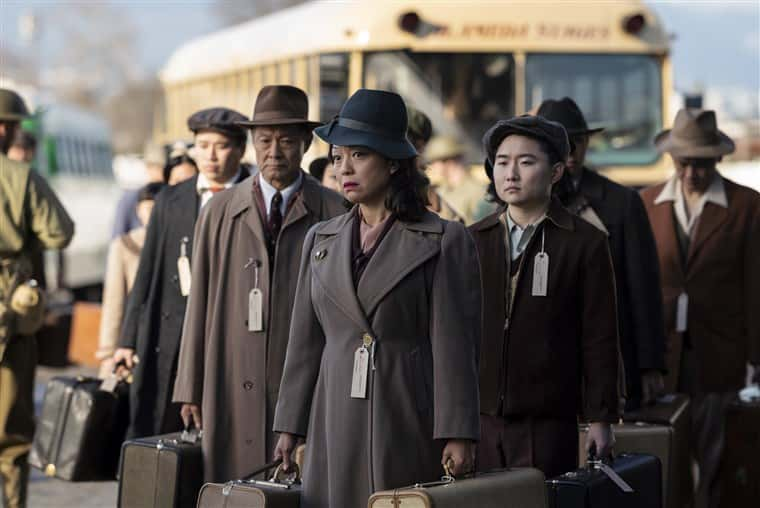
As more and more members of the community keep getting confined, the show also brings out the segregation the Japanese-Americans were forced to undergo, based on their birth, as they had to register their families at control stations. There they get divided into three different categories, based on whether they migrated from Japan, or are Japanese born in America, and even a third category which was for American citizens educated in Japan. Things get even worse when viewers get a view of the reality of these camps, or assembly centers where the people had to go to following their registration. From cow sheds to mere stables, these accommodations were unfit to lodge human beings, and the shameful practice was nothing short of stripping these people of their dignity.
Their disturbing experience didn't stop there. From these stations, the people were sent to War Relocation Centers, where they weren't even provided with basic amenities like food and drinking water. And the show brings that out with such sheer expertise, it is difficult to not hold the monstrous authorities accountable for traumatizing an entire race of people, for no fault of their own. At the same time, the shining beacon proves to be the resilience that the community shows in the face of such biased adversity - something that Takei and Mio's involvement with the show can be credited for.
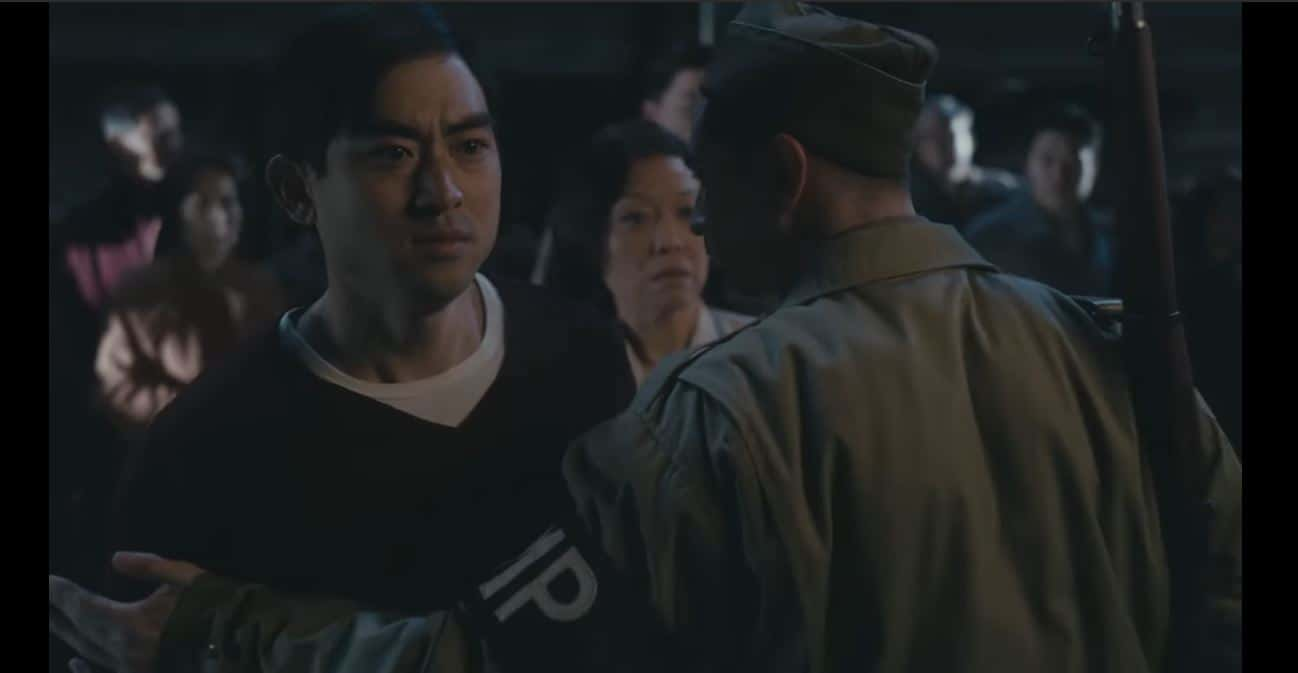
Speaking about Takei's involvement with the show, Mio said in an exclusive interview with MEA Worldwide (MEAWW) that "he (Takei) also has a personal connection to the internment camp story as well, because he actually was in two of these camps as a child. So he was also a consultant on the show and that was so special and invaluable because he brought the first-hand account to the authenticity that we were trying to portray." And that is probably what helped Alexander Woo's recounting of the horrors from those days so impeccably authentic.
And while Takei "hopes that this show would inspire people to fight injustice," it is not just him who adds to the authenticity of the plot. Mio himself has roots immersed in the horrors of the same internment camps with family members who were unjustly confined to them. "Aside from the candid similarities of Chester growing up in terminal Island and being imprisoned in a camp just like my grandfather, the character, later on, decides to enlist. My other grandfather served in the US military as well. So I definitely can identify with Chester. Of course, there are different degrees of the generational kind of conflict, but it definitely parallels my own experience as a Japanese-American. But on the plus side, I reconnected with that side of me."
'The Terror: Infamy' airs on Mondays at 9 p.m., only on AMC.

